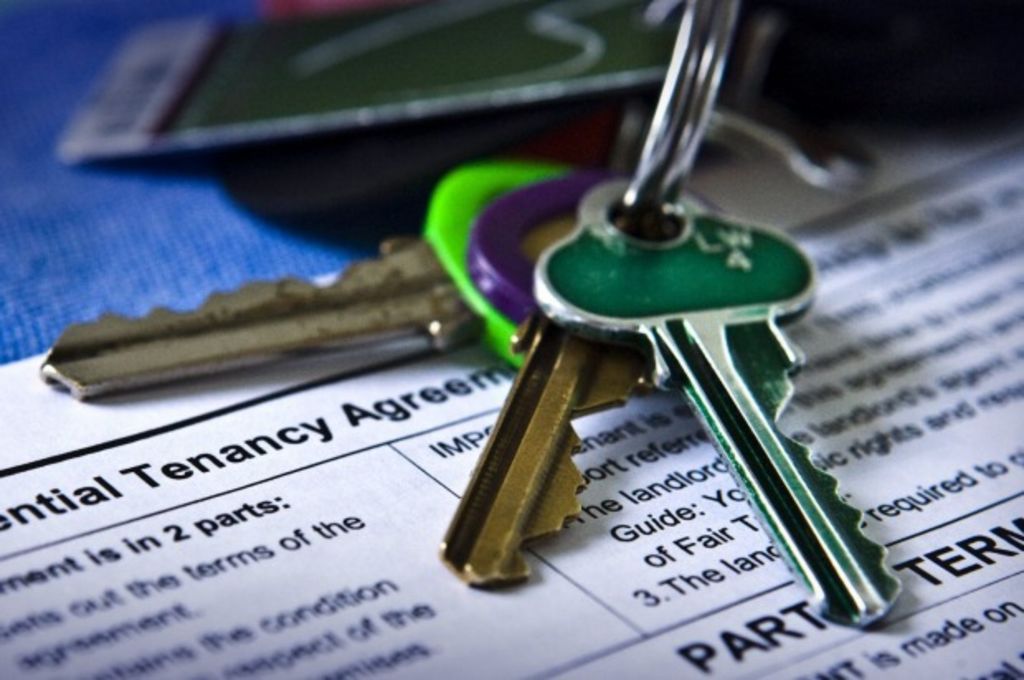Rights you may not know you have as a Sydney tenant

Tenancy laws in NSW number some 228 sections of legislation in the Tenancies Act, so it’s little wonder very few tenants or landlords know it inside out.
While most landlords do the right thing by their tenants and many of the day-to-day rights are well known by both parties, there are several critical details in tenancy agreements that are worth knowing.
Here are some of the rights tenants might not know they have:
1) Steam cleaning the carpet is not always mandatory
 Having the floors steam cleaned isn’t always a requirement. Photo: Maskot
Having the floors steam cleaned isn’t always a requirement. Photo: Maskot
Steam cleaning the carpet in a rental property can cost hundreds of dollars, but it’s not an expense that a tenant should always have to pay.
When tenants leave a rental property, they often believe or are told they must steam clean the carpets when they vacate. However, in NSW this is not actually the case.
Tenants Union of NSW policy officer Ned Cutcher said you do not need to do this unless you have agreed to it because you are keeping a pet.
If you don’t have a pet, all that’s left is whether you are leaving the carpet as you found it, taking into account fair wear and tear.
“This means you might have to steam clean it, or you might not, depending upon what it was like when you got there, and whether or not you have lawfully agreed to do it,” he said.
If you’ve made a mess of the carpet – get it steam cleaned. If you haven’t, speak to your property manager.
2) Landlords and their agents must disclose material facts
When a real estate agent is selling a home to a buyer, they must disclose certain “material facts” about a property. Withholding them is against the law.
This is the same when a tenant looks to rent a home as well. Most property managers will provide crucial details where necessary.
In NSW, tenants must be told if:
– The premises have been subject to floods or bushfires in the past five years.
– There are significant health or safety risks in the premises that are not obvious.
– The premises have been the scene of a violent crime in the past five years.
– The tenant may not be able to obtain a residential parking permit.
– If other people are entitled to share a driveway or walkway on the premises.
– If the landlord is planning to sell the property.
Landlords and agents who do not disclose these details could face fines and action from tenants.
Source: The pocket guide to tenants’ rights, Eastern Area Tenants’ Service
3) Water bills are not black and white
 Separate water meters are required for many rental arrangements. Photo: Craig Simcox
Separate water meters are required for many rental arrangements. Photo: Craig Simcox
Many tenants believe paying the water bill is non-negotiable, however landlords are required to pay this fee in specific circumstances.
There are rules about water usage charges that determine whether a tenant pays, Mr Cutcher said.
For the tenant to pay, there must be specially installed water efficiency measurers that restrict water flow rates to less than nine litres and minute and ensure no leaking taps. Often, there must also be separate meters for water usage.
“Also, they must ask for payment within three months of receiving their bill from the water supplier,” Mr Cutcher said.
Just Think Real Estate property manager Edwin Almeida said tenants could consider disputing water usage charges where the proper devices have not be installed and “where there are shared tenants in a property such as home to front and granny flat to rear”.
4) Mould, vermin and other issues can be considered “defects”
Many tenants facing issues with mould and vermin are told by property managers to open windows or make sure the property is clean. This is a fair immediate change, but if using common sense and basic mitigation methods don’t work, it’s time to ask again.
Once you have exhausted these attempts to prevent the issues and get rid of signs of mould – such as using a dehumidifier, opening windows where practical and turning on exhaust fans while showering – you can ask the landlord or property manager to fix it.
If a landlord does nothing to fix the problem, tenants can take them to tribunal to resolve the problem, or to obtain an order to leave or for rent reduction in extreme cases. You may also be able to achieve compensation for destroyed belongings and for any costs you have incurred in cleaning products or damp removing products. Be warned that if it is determined your actions have caused the pests or mould, it is possible you will incur fees for damage to the landlord’s property.
You will need photographs of the problems and details of what you have done yourself to try and mitigate the problem, as well as receipts where appropriate. Ensure you notify your property manager early of any problems.
A tenant’s rights include a property free from mould, lead paint, asbestos and overloaded electrical circuits in situations where they could be dangerous, Mr Almeida said.
5) Landlords must give consent to reasonable requests to sub-let
If you want to sub-let your rental property or bring in a new co-tenant, while living in it yourself, a landlord must give their consent if your request is reasonable.
The property manager may ask for their details and rental history, but would need grounds to decline the request.
If you want to sub-let the entire property and no longer live there, a landlord may refuse. A landlord may not refuse an additional occupant the tenant wants to have living with them, according to Fair Trading NSW.
The only time this may be refused is if the total occupants are higher than stated as a maximum in your tenancy agreement.
6) You can refuse a signboard outside the home

Tenants do not have to agree to a signboard. Source: Supplied
If the landlord decides to put the premises up for sale they require their tenant’s consent to put a ‘for sale’ sign up outside the property. It’s unlikely, but if you believe a signboard would negatively impact your ability to continue enjoying the property, you can decline this request.
Most landlords and tenants will want to come to an agreement ahead of time to ensure the process is straightforward and manageable for both parties.
Further, your landlord cannot hold an auction on-site without your consent, so you can refuse if you believe it is an unreasonable request. Speak to your property manager as early as possible with any concerns so you can come to an agreement.
7) You are entitled to minor changes and alterations

Some reasonable minor changes, such as adding picture hooks and sometimes shelves, should be given permission. Photo: Mike Baker
If you want small alterations in a rental property to make your life more comfortable, you will have to ask for the permission of the agent and landlord.
However, they may not refuse ‘minor’ reasonable requests that you are asking for at your own expense. While the law doesn’t define specifically what counts as ‘minor’, which may require a trip to tribunal in some scenarios, usually minor reasonable requests do not require structural changes to the property or painting.
Most landlords will find it acceptable for tenants to make these changes at their expense.
Minor changes could, but do not always, include:
– Installing extra window safety devices for small children
– Connecting to the National Broadband Network or Foxtel
– Putting a reasonable number of picture hooks in the wall
– Planting some vegetables or flowers in the garden
– Replacing the toilet seat
– Installing a grab rail in the shower for elderly or disabled occupants.
Source: Fair Trading NSW
If a landlord disagrees with the nature of a change, it may be up to negotiations or the Tribunal to determine whether it counts as “minor”. Interpretation can vary.
8) If something breaks, you don’t always have to pay “replacement” cost
If an item has broken in a rental property, it is not always the case that you have to pay the full replacement cost for that item.
While some property managers will request the full cost, Tribunal will often revise this down to match what is in tenancy law.
In many cases, a repair rather than a replacement can be charged, while in others it may be considered straightforward wear and tear, Mr Almeida said.
NSW Legal Answers recommends considering depreciation laws as well when determining the amount you should pay to replace damaged items.
If a landlord is claiming they had to replace an old damaged item with a brand new one, you may be able to successfully argue to pay a fraction of the cost using the Australian Taxation Office’s depreciation tables.
9) You can release your own bond
While many tenants will wait to hear from the landlord about their bond, it doesn’t legally have to be this way, Mr Cutcher said.
“Tenants do not need to wait for the landlord to ‘release the bond’ at the end of a tenancy,” he said.
Ideally, you will reach an agreement with the landlord prior to claiming the bond to save time and hassle. But if you haven’t managed to reach this arrangement you can make your own claim directly to the Rental Bond Board.
“If the landlord disputes your claim, the matter will have to go through the NSW Civil and Administrative Tribunal for resolution, and that could take some time,” he said.
With no dispute, the claim is processed and the money is released within 14 days.
10) Change locks without notification: extenuating circumstances
 In some extreme circumstances, a tenant can change locks without telling the landlord. Photo: Getty Images
In some extreme circumstances, a tenant can change locks without telling the landlord. Photo: Getty Images
While changing the locks without alerting your landlord or having permission is usually a big no-no for tenants, there are some circumstances that do permit it.
In situations of domestic violence or where the safety of a tenant is threatened, there may be a case to change the lock without a landlord’s consent.
A Tenants Union fact sheet states this is allowable when a tenant has taken an AVO with an exclusion order out against any occupant of the premises, whether it be interim, provisional or final.
The tenant is allowed to withhold copies of the new keys or opening devices from the excluded individual.
We recommend
States
Capital Cities
Capital Cities - Rentals
Popular Areas
Allhomes
More






